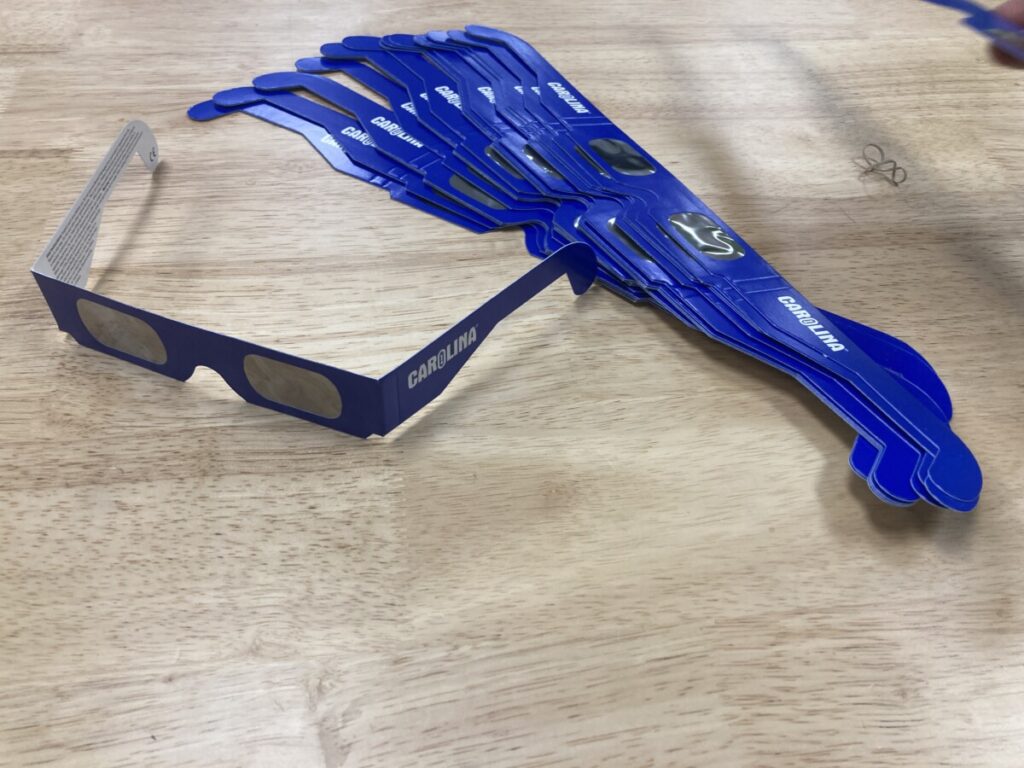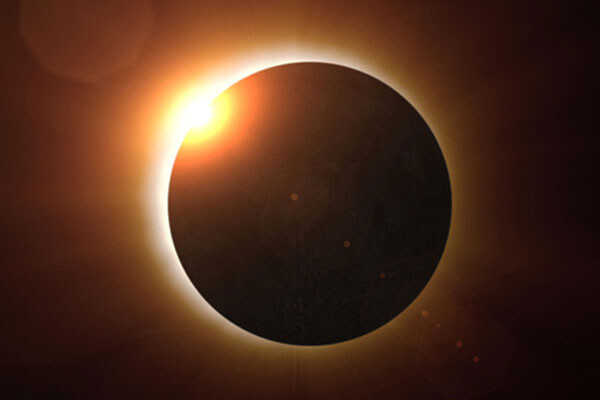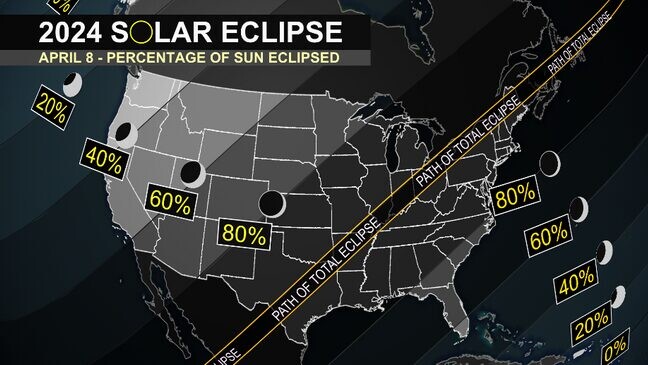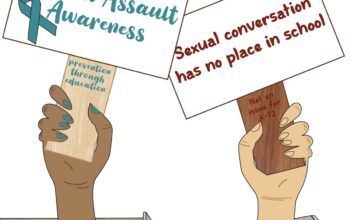Valentina Baldini, Reporter
@vbaldinicourant
On April 8, the first solar eclipse visible to the East Coast since 2017 will begin over the South Pacific Ocean and cross North America, passing over Mexico, the United States and Canada.
Solar eclipses are when the Moon comes between the Earth and Sun, blocking out the light from the Earth. “During the brief moments of totality, the sky darkens, and the temperature drops, as if night has suddenly fallen,” Said sophomore Michael Telesco, head of the astronomy club. “You’ll be able to observe the Sun’s brilliant corona, a fiery halo extending outward, as the Moon completely obscures the Sun’s face, creating a celestial spectacle that truly looks like a black hole has opened in the sky.”
Furthermore, solar eclipses are extremely rare. “They don’t occur very often, especially ones that are totality eclipses like we’re running into with this one,” Astronomy teacher Jeffrey Brenston said. “The fact that this eclipse is coming through and is a totality in the United States is fairly rare. We had a few of them in the past twenty or so years, so now it’s going to be about another twenty-two years until the next one.”
The astronomy club is designed to help members learn about astronomy and different science-related topics. They cover things from learning about constellations and stars, to learning about the solar system, planets, and the galaxy. The club will be getting involved with the programming and activities after school leading up to the solar eclipse and constantly inspiring kids to engage in scientific research. “Helping make an impact by encouraging more kids in the NCHS community to learn more about space and get excited about it, which is a rather unique opportunity at NCHS,” Michael said. “This allows students to actively participate in expanding their boundaries of knowledge by contributing to meaningful scientific efforts.”

The club also spreads knowledge to our community by hosting various activities. “Were creating night viewing sessions for people who want to learn about stars, and we’re looking at hopefully getting to do some presentations in the dome, which is fully functioning and up for the community,” said Mr. Brenston.
Science department head, Michael LeDuc wants to ensure that everyone at NCHS has a memorable and safe time when viewing the eclipse on Monday. “Every science teacher is going to do a quick five minute talk about the eclipse in science class so students are aware of what the eclipse is, how to stay safe when viewing it and really understand how unique of an opportunity it is. We’re also going to do some programming in the dome right after school on the day of the eclipse, April 8, so we can visualize it, show our students what to expect, then we’ll go outside and view it.”

Mr. LeDuc also mentioned the glasses that will be given out to students so they can stay safe and avoid damage to their eyes. “All glasses are going to be distributed during period 3, on Monday April 8. If students don’t have a class during that time they can pick up a pair from the main office,” he said. “You can do some pretty serious, lasting damage to your eyes by viewing an eclipse without glasses. Regular sunglasses are not safe to look at the eclipse, so this is a way to make sure everyone is safe and have a great time.”
Mr. Brenston also suggested other safe and easy ways to see the eclipse. “The best way to view it is with a pair of the glasses, but there’s other indirect methods you can choose. There’s a boxer, or a device, you can look through and see the shadow. You can also create the shadow by looking at a pinhole through a surface,” he said. Mr. Brenston also recommends finding an area where the sun is visible and there are no trees.
Mr. LeDuc believes that we should be excited for this remarkable experience. “Rare events like this are a once in a lifetime opportunity, so we should take advantage of this by staying safe and having a great time,” he said.




